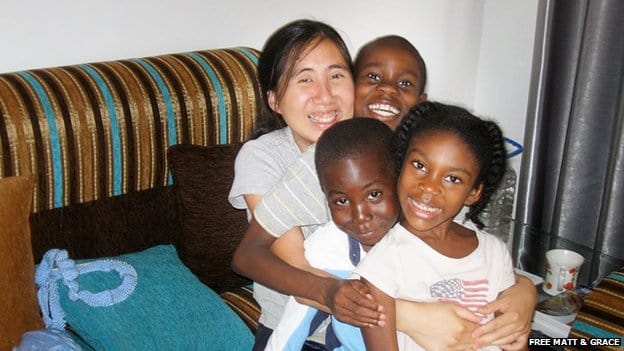Dubbed “Silicon Savannah,” Nairobi has emerged as one of Africa’s fastest-growing hubs for technology and innovation. Young tech-savvy Africans are creating software products, services, and platforms that are tailored to their local markets and are offering homegrown solutions using mobile phones and other technologies to pressing challenges in their communities.
SEE ALSO: Haitian-American Artist Uses Art To Empower Youth
This is just one example of innovation that abounds throughout the African continent. Boasting some of the world’s fastest-growing economies, science, technology, and innovation are the way forward in helping African nations to bolster global market competitiveness, create employment, and increase productivity.
As Sub-Saharan African nations rapidly develop, millions of scientists, health professionals, and technicians are needed to advance the enormous progress taking root across the continent. Top employers operating in Africa are increasingly searching for qualified candidates to fill jobs in science, technology, and health.
Yet while the continent is brimming with talent and innovation, the fact remains that Sub-Saharan Africa is facing a severe shortage of highly skilled African talent. The World Bank estimates that 2.5 million new engineers and technicians alone are required to achieve key development targets. Local engineers are also critical in meeting the ever-growing demand for building essential roads and bridges as well as operating and maintaining technical equipment.
The urgent demand for workers trained in the science and technology fields in Africa cannot be ignored. Africans in the Diaspora are uniquely positioned to contribute their skills to filling this talent gap in science, technology, and health sectors.
Armed with local knowledge and a highly skilled education and training from the United States and other industrialized countries, Diasporans can bring new technologies, knowledge and skills to strengthen their country’s workforce.
The Africa-America Institute will convene its Second Annual Talent Summit with a special focus on science, health and technology, on Saturday, May 3, at New York City’s Baruch College. The Summit panel discussions will address some of the hottest career sectors in Africa, ranging from health care and pharmaceuticals to information technology and energy and power.
Other panel discussions will feature leading industry experts on talent management and recruitment who will give insight in to hiring trends in Africa and summit attendees will engage in a conversation with expatriates and repatriates on making a continental career change.
Launched in 2013, AAI’s Annual Talent Summit aims to promote highly qualified African talent and provide a roadmap to making a successful transition to working in Africa as well as to help solve the skills gap and human resource needs of Africa-focused organizations and companies operating in the United States and on the African continent.
Many Africans in the Diaspora want to eventually repatriate home after living abroad, but one of their greatest challenges is finding suitable employment once they return. At the Summit, potential job candidates will be given unparalleled access through networking opportunities with leading experts and recruiters from U.S. and African countries.
The Talent Summit will also officially launch a new section of AAI’s website, featuring a job board, advertising opportunities, and career development resources for the African Diaspora and organizations that recruit from this talented group.
To register and for more information on the Talent Summit, please visit AAI’s Second Annual Talent Summit page and our website.
SEE ALSO: On the Contrary, Feminism Is African
 Amini Kajunju (pictured) is President and CEO of The Africa-America Institute (AAI). A native of the Democratic Republic of Congo, Ms. Kajunju is the first African to ever serve at the helm of AAI, the oldest nonprofit organization of its kind in the United States.
Amini Kajunju (pictured) is President and CEO of The Africa-America Institute (AAI). A native of the Democratic Republic of Congo, Ms. Kajunju is the first African to ever serve at the helm of AAI, the oldest nonprofit organization of its kind in the United States.
An entrepreneurial leader with strategic, fiscal, organizational and mentoring skills, Ms. Kajunju previously served for 10 years as executive director for the New York-based Workshop in Business Opportunities (WIBO), a non-profit organization whose mission is to educate, train and inspire under-resourced entrepreneurs in the Tri-State Area of New York, New Jersey and Connecticut. She served as a program manager at the International Executive Service Corps (IESC) and worked in program positions at the Social Science Research Council and Center for Humanitarian Outreach & Intercultural Exchange.
She holds a Bachelors of Arts degree in International Relations from Brigham Young University and a Masters degree in Public Administration from New York University.










